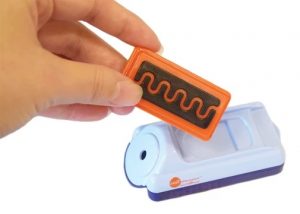Is BED WETTING / ENURESIS IN CHILDREN a sign of any illness?
 One of the very common problem encountered in children is of Bed wetting, medically termed as Enuresis. As per the statistics, it is estimated that 15% of children are upto age 5, and only 1-2% continue to do so by age 15. In fact, it is not considered to be a sign of a problem unless the child is older than seven years, or the child has begun wetting the bed again after six months of maintaining overnight bladder control. Its prevalence is more in boys.
One of the very common problem encountered in children is of Bed wetting, medically termed as Enuresis. As per the statistics, it is estimated that 15% of children are upto age 5, and only 1-2% continue to do so by age 15. In fact, it is not considered to be a sign of a problem unless the child is older than seven years, or the child has begun wetting the bed again after six months of maintaining overnight bladder control. Its prevalence is more in boys.
It is not an illness. It is a condition seen to occur in children, where involuntary urination in bed occurs after an age when one is supposed to have developed bladder control. It is an uncomfortable and embarrassing situation for both parents as well as children and has to be handled with lot of patience, love and care.
In majority of the cases, some type of psychological stress or anxiety is responsible, like bullying in school, arrival of a new baby at home, change of school/residence, etc. In few children, it may be related to some medical illness like kidney/bladder infection, diabetes, chronic constipation, small bladder, structural abnormality, etc.
There are a few tips that you can try at home :-
*Most important thing to keep in mind is to never scold your child for it. Do not punish, threaten or make fun of the child. Be patient, be supportive. No child wants to do it on purpose. Just change the bed, don’t say a word. Kids only need reassurance and encouragement, no punishment whatsoever.
*Restrict fluid intake at least for 2 hours before bedtime. Avoid drinks that contain caffeine like cola/tea/coffee.
* Make sure that the child empties his/her bladder before retiring to bed.
*In the daytime, try to increase bladder capacity and urine holding time. This can be done by increasing fluid intake and encouraging the child to hold urine as long as possible.
* Make sure that child has easy access to toilet in the night. A potty can be placed beside the bed, which child can use in the night. You can also leave the bathroom light on, as some children are afraid of dark.
*Place two rubber sheets and two cloth sheets on the bed. Teach the child to remove the first/upper sheet in case it gets wet. Also keep spare night wear for change. This way the child will learn to manage his own problems.

* Then there are bedwetting alarms, that are fitted with moisture sensors, which go off as soon as the child starts to wet. This will awaken him. This is a type of conditioning strategy, in which bladder distension slowly becomes the signal for the child to awaken and eventually, wetting will be inhibited.
If above tips do not help, please consult a medical professional. Some children may require a further checkup and short term course of medication.
To join Bedwetting patient community, click here
To read this article in Hindi, click here
Disclaimer: The content on this website is not intended to be a substitute for profes-sional medical advice or treatment. Although most foods are generally safe, some of them may have side effects. Ask4healthcare advises these to be taken/practised at user’s own discretion.
- Are you troubled by ACIDITY / HEARTBURN? - September 13, 2019
- Ways to tackle INSOMNIA - September 12, 2019
- Eliminating the need for anti rejection drugs in transplant patients - September 6, 2019
